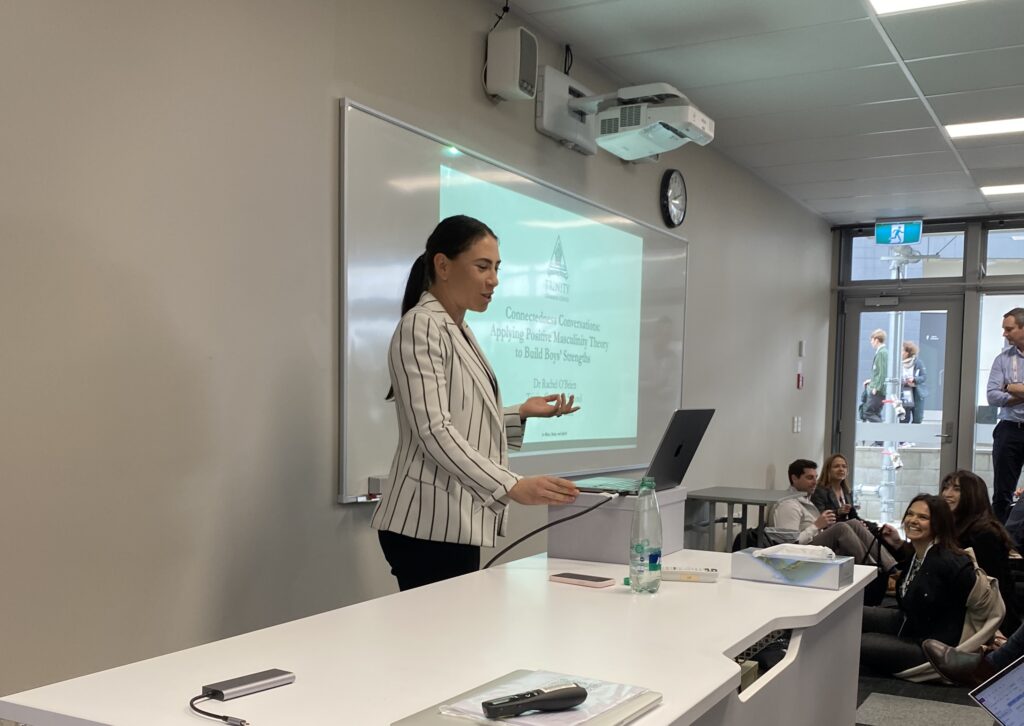Tackling the connectedness crisis: how positive masculinity theory can build boys’ strengths
Are we facing a connectedness crisis amongst boys and young men in schools? That was the question posed by Dr. Rachel O’Brien, Secondary PDHPE Teacher and Middle School Housemaster, at the 2023 Positive Masculinity conference. Dr O’Brien was invited to present on the action project Connected Conversations: Insights from Trinity Grammar School.
“The impact of a lack of connectedness has been found to correlate to boys avoiding seeking support, mental health issues, poor health and wellbeing, and poor academic outcomes,” said Dr O’Brien, citing research from Bradley et al. (2021) that, “healthy peer relationships, characterised by connectedness and a willingness to seek support, are protective against mental health issues, improve health and wellbeing, and improve academic outcomes.”
Dr O’Brien has conducted action research that investigated whether the implementation of “connectedness conversations” in the classroom helped develop traits of positive masculinity in Year 9 boys.
“Using a series of questions inspired by psychological research on how relational closeness forms, the boys were able to have structured conversations that helped them gradually reveal more and more about themselves, as well as identify ways in which they’re similar to each other, and to say the things they like about each other out loud,” she said.
This combination of self-disclosure, perceived similarities, and being open to getting close to each other is what’s been found to accelerate the creation of feelings of closeness and connection.
Dr O’Brien developed a model for developing boys’ key strength of connectedness, drawing on the ancient proverb from Ecclesiastes, “A cord of three strands is not easily broken” (Ecclesiastes 4:12).
“Weaving together the three aims of the research, connectedness conversations became an avenue for building on boys’ experiences of having positive and close conversations, sharing feelings and values with peers, and considering the association between perceptions of masculinity and healthy, relational support-seeking behaviour.”
“The findings of this action research suggest that these structured connectedness conversations are an effective, simple, connection-building intervention at the classroom level,” said Dr O’Brien.
Rather than seeing boys and young men as “being or having problems, are the increasing prevalence of mental health issues, poor health and wellbeing, and poor academic outcomes a symptom of profound disconnectedness?” she asks.
“The boys said it generated connectedness; there was a positive impact on their feelings of being supported by their peers; and in turn they associated this connectedness with a positive masculinity.
“Having these conversations, using these questions, helps boys ‘operationalise’ positive masculinity theory: being connected, motivated, and authentic contributes to forming a positive masculine identity and they experience positive relationships by taking small, ‘safe’ emotional risks and letting themselves be seen by others as they express their honest emotions.
“Research shows that connectedness is good for boys. Connectedness conversations were a useful strategy for growing positive masculine strengths in the young men we teach and guide at Trinity.”
This article originally appeared in our December 2023 Edition of Trinity News which you can view on our online digital bookshelf.



















